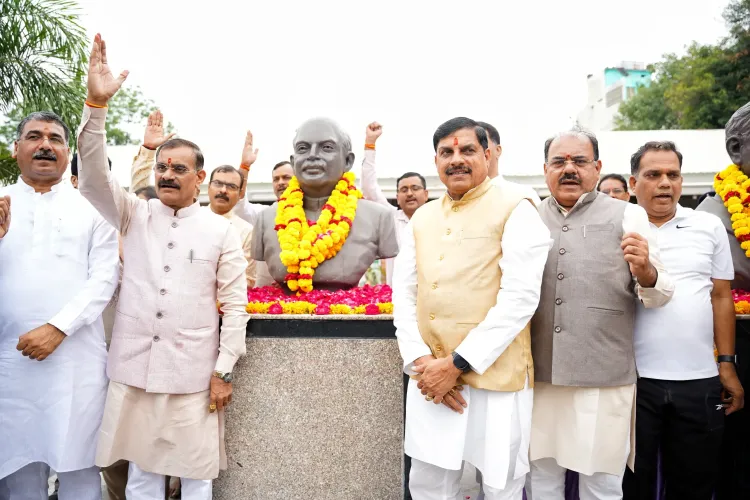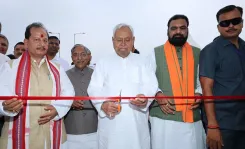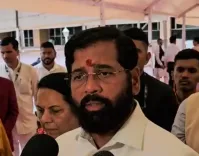What Lessons Can We Learn from Syama Prasad Mookerjee's Sacrifices?

Synopsis
Key Takeaways
- Syama Prasad Mookerjee was a key figure in India's post-Independence movement.
- He opposed Article 370, advocating for national integration.
- Mookerjee's sacrifices highlight the importance of unity in diversity.
- His legacy continues to inspire leaders and citizens alike.
- Balidan Divas serves as a reminder of his contributions.
Bhopal, June 23 (NationPress) On June 23, Madhya Pradesh Chief Minister Mohan Yadav honored the legacy of Syama Prasad Mookerjee, the architect of the Bharatiya Jana Sangh and a key ideologue of the Bharatiya Janata Party (BJP), during a commemoration of his death anniversary.
Joined by State BJP President V.D. Sharma and numerous party officials and supporters at the party's headquarters in Bhopal, the Chief Minister reflected upon the life and sacrifices of the iconic freedom fighter, who gave his life for the nation's cause.
In his address to a significant assembly of BJP members, Chief Minister Yadav praised Mookerjee's contributions, particularly noting his pioneering stance against the notion of a 'two constitution' framework in India.
"The life and sacrifices of Syama Prasad Mookerjee serve as an important lesson for us. His unwavering dedication to the nation was paramount, with national unity being his foremost concern. His 'Balidan Divas' is not merely a day of remembrance but a call to learn from his remarkable journey," the Chief Minister articulated.
Mookerjee, a significant nationalist figure in post-Independence India, is celebrated for his staunch opposition to Article 370 and his instrumental role in the campaign for Jammu and Kashmir's integration with India.
He was imprisoned for 45 days for defying Article 370, which required Indian citizens to secure a permit to access Jammu and Kashmir.
His arrest and untimely demise in custody on June 23, 1953, reverberated throughout the nation.
Having resorted to public demonstrations outside Parliament to voice his dissent against Article 370, he fiercely condemned this regulation as an effort toward the "Balkanisation of India," likening it to the "three-nation theory" proposed by former Jammu and Kashmir Chief Minister Sheikh Abdullah.
As reported on the BJP website, the Bharatiya Jana Sangh, in collaboration with the Hindu Mahasabha and the Ram Rajya Parishad, initiated a significant Satyagraha campaign advocating for the nullification of these detrimental elements of Article 370.
In May 1953, Mookerjee attempted to breach the restrictions by entering Jammu and Kashmir without the necessary permit, leading to his arrest on May 11.
He ultimately passed away while in custody on June 23, 1953.







